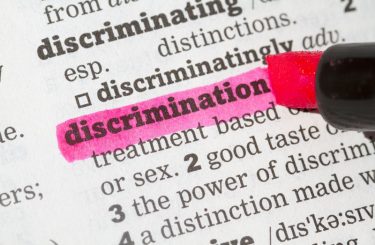Detroit Whistleblower Attorneys Protect Workers Who Report Illegal Activity
Laws protect public health and safety, preserve open access to essential information, and ensure everyone understands the ground rules for appropriate behavior in a society.
Many Michigan employers conscientiously abide by laws, rules, and regulations. However, some prefer to bend or break these rules to benefit themselves at the expense of others. These employers may try to cover their tracks by threatening to fire, demote, or punish workers who oppose or threaten to expose their misdeeds.
Michigan and federal whistleblower laws protect workers who “blow the whistle” on federal, state, or local law violations. If you’ve reported an employer’s misconduct and now face retaliation, contact an experienced Michigan whistleblower attorney today. The team at Sommers Schwartz is dedicated to protecting Detroit workers who report employer misconduct.
What Are Whistleblower Laws?
A “whistleblower” is an employee who reports an employer’s violation of federal, state, or local law to a public agency. For example, a whistleblower might report a violation of criminal laws to the local or state police department. If an employer violates health and safety regulations, a whistleblower may report the violations to the Occupational Safety and Health Administration (OSHA) at the state or federal level.
Employees are often the first to spot violations. However, many hesitate to report violations because employers have the power to fire, demote, or penalize employees. Even when employees see or suspect a violation, they may not report it, fearing punishment or retaliation.
Whistleblower laws ensure employers do not abuse their power to punish employees who report legal violations. The Michigan Whistleblowers’ Protection Act prohibits employers from firing workers who blow the whistle on legal violations. Employers may not discriminate against whistleblowers, such as by reducing pay or changing the conditions of the job.
Protections Under the Michigan Whistleblowers’ Protection Act
The Michigan Whistleblowers’ Protection Act protects Michigan employees who report their employer’s violation or suspected violation of the law. Under this law, employers may not “discharge, threaten or otherwise discriminate against” employees who:
- Report a violation of federal, state, or local laws.
- Report a suspected violation of federal, state, or local laws.
- Prepare to report a violation or a suspected violation.
- Are asked by a public body to participate in an investigation.
- Ask someone to report a violation or a suspected violation on their behalf.
To qualify for protection under the Act, you must prepare or make a report about your suspicion or knowledge of your employer’s wrongdoing to a public body. You may report a violation if you have a good faith belief that your employer is breaking the law or is about to do so; you don’t need to provide proof.
Michigan’s whistleblower law states employers may not “discharge, threaten or otherwise discriminate against” employees. This includes many types of behavior. If you are a whistleblower protected by the Act, employers may not:
- Fire you.
- Reduce your pay or change the benefits you receive.
- Change the terms, conditions, location, or privileges of your employment.
These rules apply both to your initial report and other related actions. For example, an employer may not discriminate or retaliate against you if you cooperate with investigators, participate in a public hearing, or testify in court.
The Michigan Whistleblowers’ Protection Act has some limitations. These include:
- Collective bargaining agreements. The Act doesn’t affect either the employee’s or employer’s rights under any collective bargaining agreement. Your union representative can provide a copy of your collective bargaining agreement.
- Compensation for required appearances. The Act does not require your employer to provide paid time off for you to participate in an investigation, public hearing, or court action related to your report.
- False reports. If you know the violation you reported didn’t occur or don’t have a reasonable belief that it did, the Michigan Whistleblowers’ Protection Act does not protect you.
Michigan employers are required to post a notice explaining employees’ rights under the Michigan Whistleblowers’ Protection Act.
Federal Whistleblower Protection Laws
The federal government also has several whistleblower protection laws. These laws cover several topics, from unsafe workplaces to financial improprieties.
Federal law prohibits employers from retaliating against employees who make “protected disclosures.” A protected disclosure is:
- Based on a “reasonable belief” that a law has been broken.
- Made to a person or entity authorized to receive it.
Like Michigan’s whistleblower laws, federal whistleblower laws do not protect employees who make claims they know are false. To receive protection under whistleblower laws, an employee must know or reasonably believe their report is true.
In addition, reports must be made to an authorized party. At the federal level, a report must be made to the agency responsible for overseeing the law the employee believes is being broken.
The U.S. Occupational Safety and Health Administration (OSHA) enforces nearly two dozen federal whistleblower laws. These laws include:
- Affordable Care Act (ACA).
- Anti-Money Laundering Act (AMLA).
- Asbestos Hazard Emergency Response Act (AHERA).
- Aviation Investment and Reform Act (AIR21).
- Clean Air Act (CAA).
- Comprehensive Environmental Response, Compensation, and Liability Act (CERCLA).
- Consumer Financial Protection Act (CFPA).
- Consumer Product Safety Improvement Act (CPSIA).
- Criminal Antitrust Anti-Retaliation Act (CAARA).
- Energy Reorganization Act (ERA).
- Federal Railroad Safety Act (FRSA).
- Federal Water Pollution Control Act (FWPCA).
- Food Safety Modernization Act (FSMA).
- International Safe Container Act (ISCA).
- Moving Ahead for Progress in the 21st Century Act (MAP-21).
- National Transit Systems Security Act (NTSSA).
- Occupational Safety and Health Act (OSH Act).
- Pipeline Safety Improvement Act (PSIA).
- Safe Drinking Water Act (SDWA).
- Sarbanes-Oxley Act (SOX).
- Seaman’s Protection Act (SPA).
- Surface Transportation Assistance Act (STAA).
- Solid Waste Disposal Act (SWDA).
- Taxpayer First Act (TFA).
- Toxic Substances Control Act (TSCA).
These federal laws apply to reporting legal violations in a wide range of situations and industries, including discrimination in healthcare plans, violations of pollution laws, workplace safety issues, and breaches of tax and finance laws.
OSHA investigates and pursues reports of violations related to these laws. Other federal agencies handle different types of whistleblower reports. For example:
- The Mine Safety and Health Administration (MSHA) addresses violations and worker protections related to work in U.S. mines.
- The Office of Federal Contract Compliance Programs (OFCCP) oversees discrimination laws and complaints in federal offices and with employers who contract with the federal government.
- The Wage and Hour Division (WHD) of the Department of Labor handles violations of minimum wage, overtime pay, recordkeeping, child labor laws, the Family and Medical Leave Act (FMLA), and other laws related to employment, pay, and benefits.
- The Veterans’ Employment and Training Service (VETS) provides support for veterans, including protecting veterans’ employment rights and addressing whistleblower concerns related to the Armed Services.
At the federal level, the whistleblower rules that apply to any particular case depend on that situation’s facts. Reporting to the correct federal agency is essential to receive the protections of the applicable federal whistleblower laws.
To determine the laws that apply to your situation, your attorney will examine factors like your employer’s industry and the type of wrongdoing you reported or planned to report.
What To Do if You Need Help
The Michigan Whistleblowers’ Protection Act gives workers 90 days from the date of an adverse action to file a lawsuit. In other words, you have only 90 days to bring a claim for retaliation after an employer discriminates against you for whistleblowing activity.
Federal laws vary in how long they give an employee to file a claim after an employer retaliates against an employee for whistleblowing. In some cases, the time limit is as short as 30 days from the date of the employer’s retaliation.
If a Michigan court finds your employer violated the Michigan Whistleblowers’ Protection Act, the court may:
- Fine the employer up to $500.00.
- Order that your employer return you to your job with the same benefits and seniority rights you had originally.
- Order your employer to pay back wages, actual damages, or both.
- Order your employer to pay your attorney’s fees and costs.
Federal whistleblower laws each contain different provisions regarding the damages or compensation available in retaliation cases. A court’s actions in those cases will depend on what the applicable law allows.
No two whistleblower protection cases are the same. However, filing your claim quickly is essential. An experienced Detroit whistleblower attorney can help you meet the applicable deadlines and understand how the law applies to your situation.
At Sommers Schwartz, P.C., our legal team is dedicated to helping our clients protect their legal rights and take the next step forward. Contact us today to learn more. We can help you make a plan to protect yourself and get justice.
We fight hard. And we win.
News & Case Alerts
Read related articles and learn about recently filed cases.
From a Happy Client
I can’t thank this team enough. From start to finish, they were compassionate, knowledgeable, and truly dedicated to getting the best possible outcome for me. It made such a difference knowing I had a team that genuinely cared.
Praise for Lenore Zakhem
Lenore Zakhem worked on my liability case efficiently and effectively! I would recommend and Sommers Schwartz for any legal matters in the future!!
A Referring Attorney Praises Matt Turner
I have years of experience with the attorneys and staff at Sommers Schwartz. Over that time, I have referred a number of people to attorneys there. These referrals include friends and family, who I would trust to only Sommers Schwartz. Whenever I refer someone to attorney Matt Turner and his…
Kind Words for Matthew Turner
If you’re seeking a medical malpractice attorney, Matthew Turner is an exceptional choice and empowers trust through his remarkable expertise. From our initial consultation with Matt, my husband and I felt inspired by his confidence. Although the process was lengthy, Matt and his team, particularly his assistant Janice, consistently provided…
Praise for Our Professional Staff
I had an incredible experience working with Sommers Schwartz for my medical malpractice case. Alexis Fernandez was absolutely amazing—professional, knowledgeable, and truly dedicated to helping me every step of the way. She took the time to explain everything in detail, and answered all my questions! Her compassion and expertise made…
About Attorney Muskan Ali
I had a great experience working with Attorney Muskan Ali. She is extremely knowledgeable in her field and I felt supported the whole way through my legal issue. I highly recommend working with her!
We Deliver Life-Changing Results
My experience with Sommers Schwartz has been nothing short of extraordinary. This exceptional team of legal professionals not only handled my case with remarkable expertise but also transformed my life in ways I never thought possible. From our very first consultation, it was clear that this firm operates at an…
Our Clients Say It Best









